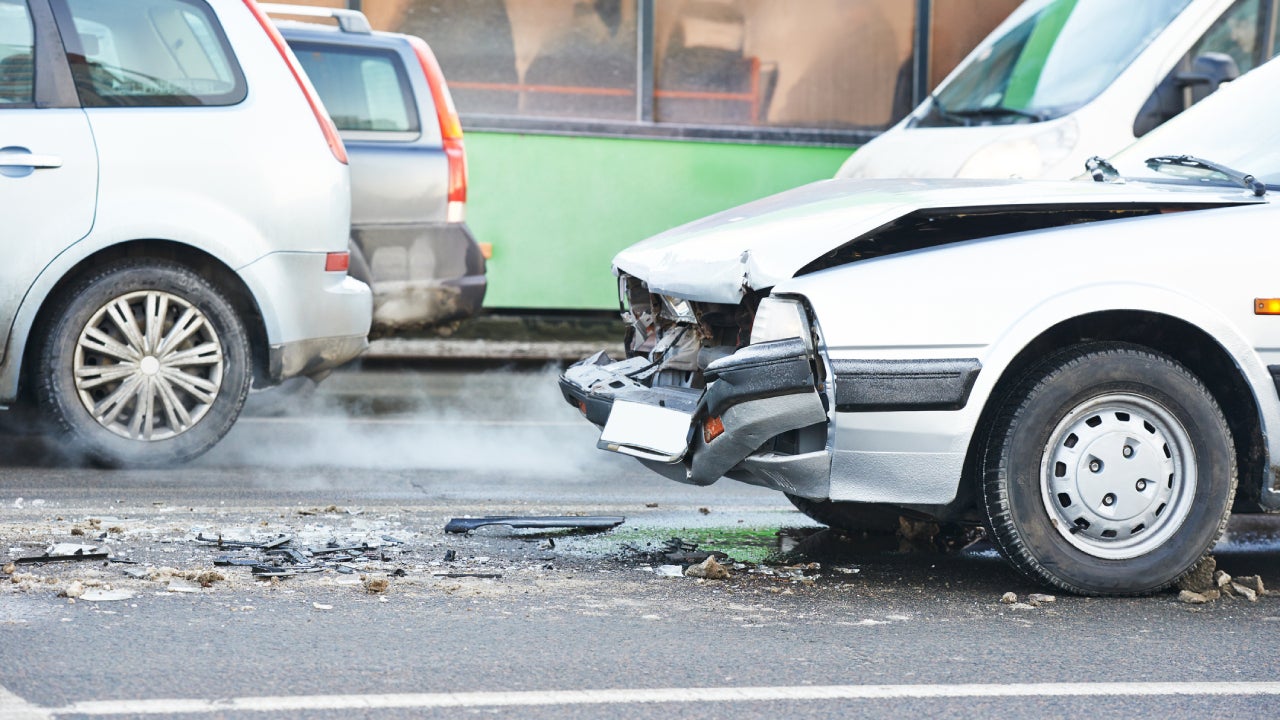What happens to car insurance when the policyholder dies?

Key takeaways
- Policies are not automatically canceled when someone dies — you need to contact the insurer to inform them of the death.
- You’ll need to provide documentation, such as a death certificate, when canceling a policy.
- If the policy has an open claim, the insurance company will continue the claims process after the policy is canceled.
When a loved one passes away, getting their affairs in order can be a complex process. In addition to closing their bank accounts and executing their will, you also have to cancel their car insurance and any other policies they have. In this guide, we’ll share what happens to car insurance when someone dies, and explain how to cancel a car insurance policy for a deceased loved one, whether it’s your spouse, a parent or someone else.
What happens to a car insurance policy after the policyholder dies?
One of the misconceptions around car insurance is that if the primary policyholder passes away, their policy will be automatically canceled and the coverage will stop. Unfortunately, the insurance company has no way of knowing that a policyholder has passed away until a spouse or relative notifies them and requests to cancel the policy. After a primary policyholder passes away, their car insurance policy will need to be canceled or their name will have to be removed from the contract if there are other drivers on it.
If you need to terminate a car insurance policy for someone who has passed away, the process is usually easier if you are a spouse or a driver insured on their policy. However, if you are unrelated to the policyholder or are the executor of that person’s estate but not a spouse, you will probably find that canceling their policy is a lengthier process.
Closing a car insurance policy for a spouse
If your spouse passes away, canceling their car insurance policy is a relatively straightforward process. You will most likely need to submit documentation proving the policyholder’s death to complete the process.
Here are the basic steps to follow:
- Call the insurance company: Contact the insurance company or your agent and let them know that the policyholder has passed away and that you would like to cancel their policy. If you are also insured on the policy, they may ask if you want to keep the policy and become the primary policyholder.
- Provide documentation: The insurance company will likely ask to see documentation verifying the policyholder’s death, like a death certificate or an executor of estate form. If you have to provide any other forms, the insurance company will explain what they need.
- Wait for confirmation: Typically, an insurance company can formally cancel the policy within one day. The last step is to wait for the cancellation confirmation. You may also receive some reimbursement from the insurance company if the monthly, semi-annual or annual premium has already been paid.
If my spouse dies, will I have to get a new car insurance policy?
If your spouse dies, you may be able to keep your car insurance policy, but in some cases, you might have to get a new car insurance policy. For instance, if you are both insured on the same policy, you could ask your insurance company to remove your spouse and keep you as the main policyholder. You would then be responsible for paying the premiums if you weren’t already. If you update your existing policy, it will also be re-rated with one less driver listed, which could mean a premium reduction.
If you aren’t already on the policy or the title of the vehicle, you might need to get a new car insurance policy. To find out what the best approach is for your situation, it may benefit you to reach out to your insurance company or agent, explain the situation and have them provide a solution based on the registered vehicle title owner(s) and current policy details.
Closing a car insurance policy for someone other than a spouse
Canceling a car insurance policy for a policyholder that you are not related to can be more challenging. However, if you are the executor of their estate or are a friend or relative, you should still be able to cancel their car insurance, provided you can prove your relationship to the deceased policyholder. Here are some steps you can take:
- Call the insurance company: Call the insurance company or your agent and let them know that you would like to cancel the policy for someone who has passed away. You may need to present certain information, like the policyholder’s Social Security number or personal information, to prove that you are not a stranger trying to commit car insurance fraud.
- Provide documentation: Whether you are related to the policyholder or not, you will likely still need to provide documentation to prove that the insured person has passed away and that you are legally allowed to close their policy. As someone who is not related, there may be additional information you are required to provide.
- Wait for confirmation: Canceling an insurance policy for someone you are not related to may take slightly longer because the insurance provider will need to verify your status as the estate executor. If the policyholder is entitled to any money from past premiums, it will likely go directly into their estate.
How long you can stay on your parents’ car insurance policy if they die depends on how the policy is written, who the listed drivers are and how the vehicle is titled. The company may allow you to remove your parents as drivers and make you the policyholder, or you might have to purchase a new policy. Each situation is unique, so you should speak with your insurance agent to determine what the next step is to ensure you and your vehicle continue to be protected and don’t face a lapse in coverage.
What happens to open claims if a car insurance policyholder dies?
If the policyholder passes away while they have an open claim, you can still go through the process of canceling the policy. The insurance company will continue the claim process through to settlement even if the policy is no longer active.
However, keep in mind that the policyholder may still have a deductible taken from the claim payout or other out-of-pocket costs once the claim is settled. If the policyholder has passed away, their estate will be responsible for paying the amount owed.
Will a car insurance company issue a refund if the policyholder dies?
In some cases, the deceased person’s insurance company will refund their unused premiums after their policy is cancelled. This usually happens when the policyholder has paid their annual premium upfront and in full, and the policy was still active when they passed away. Insurers might also provide a refund if the policy is paid monthly, and you cancel before the end of the month.
For instance, if the monthly premium was paid on January 1 and you cancel the policy on January 3, you may get back a portion of that month’s premium. Every insurance company is different, and so are the rules that regulate insurance companies in every state. Talk to an insurance agent or company representative at the deceased person’s insurance company to find out if there will be any refunds.
Frequently asked questions
Why we ask for feedback Your feedback helps us improve our content and services. It takes less than a minute to complete.
Your responses are anonymous and will only be used for improving our website.
You may also like

Car insurance after a hit-and-run in West Virginia

Car insurance after a hit-and-run in Tennessee

What is car insurance and how does it work?




